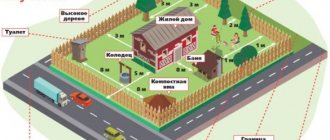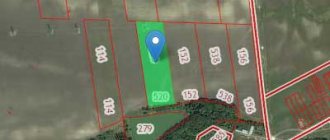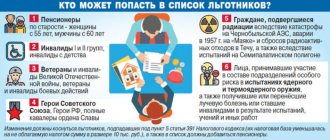Pravozhil.com > Real estate registration > What types of property rights are there in the Russian Federation and what every citizen needs to know
Before considering what types of rights to property there are, it is necessary to determine what is meant by the latter. The right to property is the most common system that surrounds each of us in the modern world. Despite the fact that the classification of such powers has no practical significance, each of us needs to understand it in order to navigate the law and prevent violations of freedoms.
The concept of property in Russian legislation
Property may also be of an intangible nature
What is covered by the term “property”? To do this, you must indicate Art. 128 of the Civil Code of the Russian Federation, which indicates the types of objects - things, cash, securities, other property.
Based on this, we see that there is no specific definition in the law; it is a collective concept that is distinguished by its heterogeneity and versatility. In the broadest sense, property is considered as a set of things and responsibilities that correspond to them.
There are quite a few articles in the Civil Code in which this concept appears, but there is no exact wording anywhere. In this regard, you need to understand several basic points regarding the definition of property:
- This is a system of material things and values that are at the disposal, use and possession of a person, that is, they are his property.
- This is a certain set of things that are aimed at obtaining material benefits from third parties - these are assets.
- Things, duties that primarily illustrate their bearer.
Taxable income...
According to tax accounting rules, all income that is not revenue from the sale of goods (work, services) and property rights is considered non-operating income. Their open list is in Article 250 of the Tax Code of the Russian Federation. For example, non-operating income includes:
- dividends;
- interest received under loan and credit agreements;
- gratuitously received property and property rights;
- income from previous years identified in the current period;
- amounts of accounts payable written off due to the expiration of the statute of limitations;
- the cost of surplus inventories and other property identified during the inventory, etc.
Among non-operating income subject to income tax is income in the form of gratuitously received property (work, services) or property rights (clause 8 of Article 250 of the Tax Code of the Russian Federation).
After all, income is not only the actual receipt of money. Income (economic benefit) from the free use of property consists of the money saved that the company would have paid if it had used the property for a fee.
In this case, income must be assessed based on market prices, but not lower than the residual value - for depreciable property and not lower than production (purchase) costs - for other property (work performed, services provided). The taxpayer - recipient of property (work, services) must confirm information about prices with documents or by conducting an independent assessment.
Property rights: definition and main characteristics
Despite the fact that this phrase appears quite often in legislation, there is no structured understanding and definition for it. Scientists also have quite different approaches to considering this issue, and therefore it is necessary to determine the most general and complete provisions.
Property rights are, first of all, the ability to claim under any civil obligation. In simple terms, every citizen of the Russian Federation can own, use, and dispose of certain property, regardless of its shape, size and characteristics.
They are implemented on the basis of the inviolability of property, equality of the parties to the contract, autonomy and independence of the participants in legal relations. They are subjective, which means that they belong to each person individually and the process of their implementation completely depends on the will and opinion of the owner.
Property rights are closely related to the concept of property; one might even say that one does not exist without the other. Property does not exist without an owner; it necessarily belongs to someone. These common features and characteristics are especially important for each of us to understand, because apartments, cars, dachas, land and much more are our property.
Signs
The key features of personal non-property rights are the following:
- Lack of material character. There is no monetary content and no possibility to evaluate the rights in any equivalent value. No remuneration. This feature prohibits other persons from taking measures to collect from an object that has personal rights.
- Individualization of personality.
- Impossibility of alienation and transfer in any other way. There is a group of special objects. These include health, life, inviolability of personal and private life, honor and dignity, family and personal secrets, results of intellectual activity and others.
Types of property rights
The main types of rights in this area are real, obligatory and intellectual, each of which will be discussed further.
Note! The classification of the entire set of rights into three categories has no relation to taxation issues or other legally significant actions. The above division is more theoretical in nature and is aimed at forming a general idea of property rights.
Rights to the results of intellectual activity, means of individualization
This category is the newest and most dynamically developing category, which is increasingly used in the modern world, and is regulated by Part 4 of the Civil Code of the Russian Federation.
Intellectual property refers to two components - the results of human activity and means of individualization, which are equated to the former. A person actively engaged in creative, scientific or other intellectual activities can create an object with ownership rights to it. Practice shows that the main products of this type of property are:
- Databases, registries and systems.
- Phonograms, audio recordings, performances.
- Invention, experimental results, models and industrial samples.
- Names for brands and companies, service marks and goods.
- The results of literary activity, art or science.
- Software for technology.
Rights to the results of a person’s intellectual work consist of several categories - the ability to use, dispose of and protect one’s works from illegal taking and use by third parties. Such powers can belong to either one person or a group of people, if the creation was published as a group.
Every creator can not only exercise their rights, but also protect them. To do this, a person’s right to a specific object or product is established in court, with the provision of evidence confirming the fact of ownership.
Note! The very results of a person’s activity or individualization cannot be transferred from one person to another or alienated. Only rights to the results of activities, or material media with them, participate in civil circulation.
Characteristics of rights of obligation
The group under consideration includes a system of rights that is closely related to property relations that arise in the process of implementing civil contractual relations. A special feature is the presence of two parties - the creditor and the debtor.
It is important to understand that such an obligation is the relationship between the parties in the process of economic turnover of goods, that is, the debtor has an obligation to transfer property or sell a service, work, make a payment, or refuse any action.
The creditor has the right to demand the timely fulfillment of his obligations by the debtor. There is a state of interconnection and dependence of one on the other, that is, rights of obligation give the creditor the opportunity to rule over the debtor.
Forms (types) of property rights
In Art. 212 of the Civil Code of the Russian Federation presents the division of types of property by subject, i.e. depending on who owns it. In other words, the form of ownership is determined by the range and nature of authorized entities. The following forms of ownership are distinguished:
1) private property - property of citizens and legal entities; 2) state property; 3) municipal property; 4) other forms of ownership.
It should be noted that the concepts of “forms of property rights” and “types of property rights” are usually identified.
By virtue of the law, citizens and legal entities can own any property, the quantity and value of which is not limited. The exception is certain types of property, which, in accordance with the law, cannot belong to private individuals (Clause 1 of Article 213 of the Civil Code of the Russian Federation).
Private property, i.e. The property of citizens and legal entities can equally be both individual and collective (common).
Private property of individuals . Private property, the subjects of which are citizens, is designed to serve exclusively their interests. A citizen, including an individual entrepreneur, is the owner of the property belonging to him and is responsible for all his obligations (Articles 24, 25 of the Civil Code of the Russian Federation). At the same time, certain types of his property, the list of which is given in Article 446 of the Code of Civil Procedure of the Russian Federation, cannot be recovered. In the event of the death of the owner - an individual, the property belonging to him by right of ownership passes by inheritance to his heirs by law or by will.
Private property of legal entities. Legal entities (commercial and non-profit organizations) are the owners of property transferred to them as contributions by their founders (participants, members), as well as property acquired by these legal entities for other reasons (clause 3 of Article 213 of the Civil Code of the Russian Federation). That is, the very fact of the formation of an organization indicates that its participants are endowed with certain property. An exception to this rule is provided by state and municipal enterprises and institutions, for which the state, a subject of the Russian Federation or a municipal entity remains the owner of the transferred property. In most cases, property is transferred to these entities on the basis of the right of operational management or economic management.
After the termination of the activities of a legal entity, the remaining property is subject to distribution among its participants in proportion to their shares.
Public and religious organizations (associations), charitable and other foundations are the owners of the property acquired by them, which is used by such entities exclusively to achieve the goals specified in the constituent documents (Clause 4 of Article 213 of the Civil Code of the Russian Federation). The founders (participants, members) of these organizations lose the right to property transferred by them into the ownership of the relevant organization. In the event of liquidation of a public or religious organization, its property remaining after satisfying the claims of creditors is used in accordance with the purposes for which it was founded.
State property is divided into two levels: 1) federal property includes property owned by the Russian Federation; 2) regional property includes property owned by subjects of the Russian Federation - republics, territories, regions, cities of federal significance, autonomous regions, autonomous districts (property of a subject of the Russian Federation) (Article 214 of the Civil Code of the Russian Federation). Land and other natural resources that are not owned by citizens, legal entities or municipalities are state property.
The state exercises its powers through a system of public authorities, each of which is endowed with its own competence. On behalf of the Russian Federation and the constituent entities of the Russian Federation, the rights of the owner are exercised by the bodies and persons specified in Art. 125 of the Civil Code of the Russian Federation. State-owned property may be transferred under the right of operational management or economic management to state enterprises and institutions. State-owned property can be transferred to other legal entities, for example, on a lease basis, and in most cases we are talking about a long-term lease, which allows one to simultaneously transfer the responsibility to bear all expenses.
State property has specific grounds for its emergence and termination (nationalization, confiscation, privatization), and some types of property may be exclusively in state or municipal ownership.
Municipal property includes objects belonging to: 1) urban settlements; 2) rural settlements; 3) other municipalities (Article 215 of the Civil Code of the Russian Federation). Municipal property includes both movable and immovable property and belongs to the municipality, and powers are exercised by the relevant local government bodies. Property that is in municipal ownership may be assigned to the possession, use and disposal of municipal enterprises and institutions.
Thus, all bodies of the municipal formation, which are the representative and executive bodies, can act as subjects of municipal property rights.
Other forms of ownership . The concept of “other forms of ownership,” although used in the law, is not disclosed either in the Constitution or in the Civil Code of the Russian Federation. Based on the criterion of the subject of property, its other forms include property in the Russian Federation of foreign states and international organizations, which has the peculiarities of its regime due to international treaties concluded by the Russian Federation.
Why should you choose our board?
The lawyers of our panel have significant practical experience in resolving issues in the field of civil law. By turning to them, you can increase your chances of success, acting as both a plaintiff and a defendant. Our specialists know what personal non-property rights include, how to competently draw up and execute procedural documents, what position to take, and how to provide protection in order to achieve a positive court decision. In the professional baggage of the Bar's lawyers there are thousands of cases of this category that are resolved in favor of their clients.
The cost of a lawyer’s services on this issue is from 30,000 rubles.
Sign up for a free consultation with a lawyer






